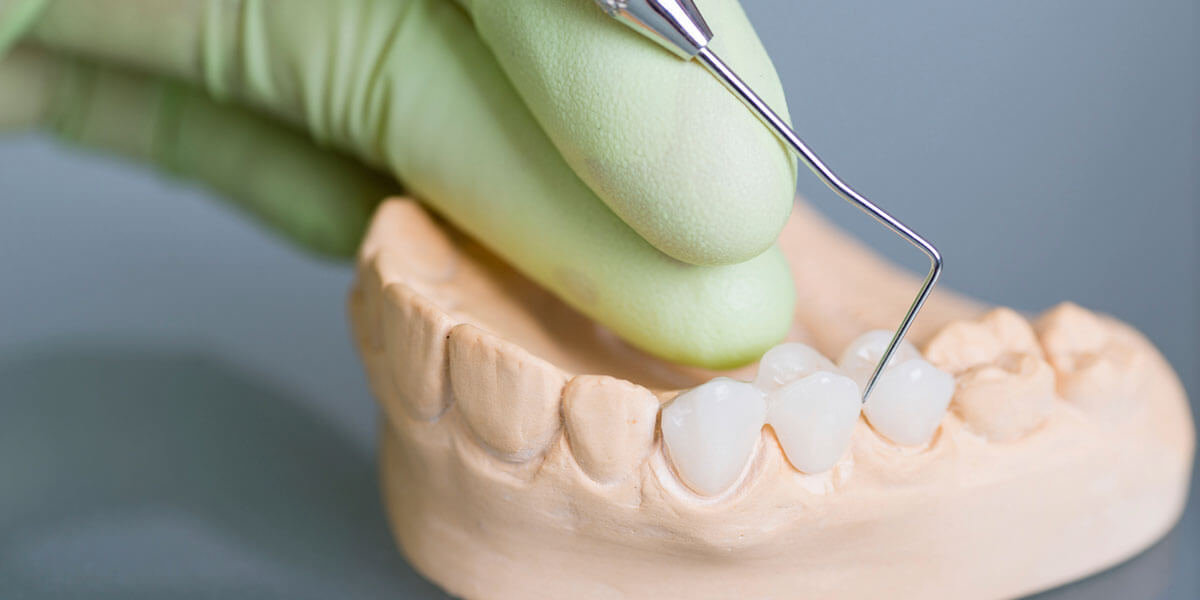Dental Bridges in Forty Fort

Dr. Todd Paczewski provides dental bridge services in Forty Fort, PA. Call 570-287-2500 to learn more and schedule your appointment.
Dental bridges are a common restorative solution for lost teeth. Bridges come in a few different forms, but what they all have in common is that they rely upon abutments (supports) to hold a span of prosthetic teeth (pontics) in place.
Bridges can be made with a number of materials, but Dr. Todd uses high-quality options that mimic your natural teeth in strength, function, and appearance. Once your bridge is placed, it will blend in seamlessly with the rest of your smile.
Types of bridges include:
Traditional Dental Bridge
A traditional dental bridge involves placing crowns on the two teeth on either side of the gap in your smile. These crowns serve as abutments to hold your bridge in place. Traditional bridges can replace a single missing tooth or several.
Cantilever Bridge
We use a cantilever bridge when only one neighboring tooth is available to serve as an abutment and an implant-supported bridge is not an option. A cantilever bridge has the disadvantage of placing a great deal of stress on the abutment tooth, making it vulnerable to fracturing.
Implant-Supported Bridge
Implant-supported bridges are the only type of bridge that addresses tooth loss both above and below the gumline. Instead of relying on support from adjacent teeth, this type of bridge is supported by dental implants that replace the two outermost missing teeth. Implant-supported bridges are a great solution when three or more adjacent teeth need to be replaced.
Maryland Bridge
Maryland bridges, like traditional bridges, use two neighboring teeth for support, but instead of crowns, a metal or ceramic framework is bonded to the backs of the teeth for support. The abutment teeth have less stress placed upon them, but Maryland bridges are more prone to breaking off because they don’t have the same stability as a traditional or implant-supported bridge.
Frequently Asked Questions About Dental Bridges
How long does a dental bridge last?
A typical bridge lasts roughly 10 years, depending on the placement of the bridge in your mouth, the type of bridge and material, and your dental hygiene habits. Bridges may last much longer than 10 years with exceptional care.
Do dental bridges hurt?
If you're getting a traditional bridge, a cantilever bridge, or an implant-supported bridge, Dr. Todd will use local anesthetic to ensure you don't feel any pain while the abutments are being prepared. (There is no discomfort involved in getting a Maryland bridge because they only require external support, although you might experience some sensitivity in the supporting teeth after your appointment.) You may have some soreness once the anesthesia wears off, but you can alleviate any discomfort with over-the-counter pain medication.
Do I need a bridge after a tooth extraction?
If you've had a tooth pulled, you're probably anxious to get it replaced as quickly as possible. Although bridges are one of the most common solutions for a missing tooth, dental implants are becoming increasingly popular. A denture may be a viable option if all or most of your teeth have been extracted or lost. Dr. Todd will go over each choice with you and help you select the best one for your needs, preferences, and budget.
Can a dentist fix a loose bridge?
Yes, repairing a loose dental bridge usually just requires only a quick office visit. A loose bridge might fall out or damage nearby teeth, so it's a good idea to schedule an appointment with us as soon as possible.
Call 570-287-2500 to schedule your appointment.